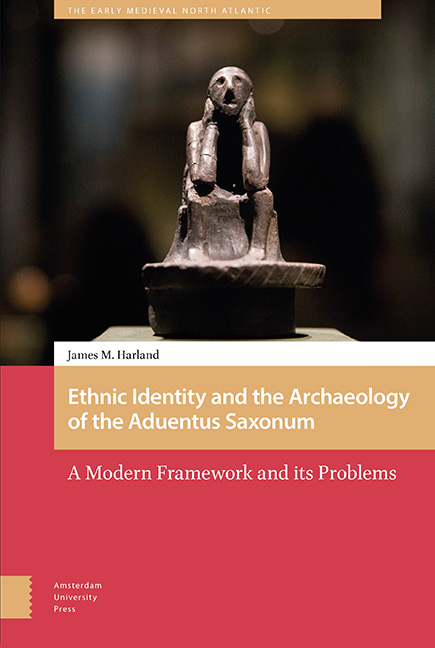Book contents
- Frontmatter
- Dedication
- Table of Contents
- List of Tables and Figures
- Acknowledgements
- 1 Introduction
- 2 Ethnicity and Archaeology
- 3 Empiricism and Metaphysics
- 4 Deconstructing Anglo-Saxon Archaeology
- 5 The Material Evidence Reconsidered
- 6 Building an Alternative
- 7 New Approaches and Final Reflections
- Appendix: Spong Hill Data
- Bibliography
- Index
3 - Empiricism and Metaphysics
Published online by Cambridge University Press: 16 December 2021
- Frontmatter
- Dedication
- Table of Contents
- List of Tables and Figures
- Acknowledgements
- 1 Introduction
- 2 Ethnicity and Archaeology
- 3 Empiricism and Metaphysics
- 4 Deconstructing Anglo-Saxon Archaeology
- 5 The Material Evidence Reconsidered
- 6 Building an Alternative
- 7 New Approaches and Final Reflections
- Appendix: Spong Hill Data
- Bibliography
- Index
Summary
In the last chapter, I demonstrated that ethnicity and its associates remain conceptual categories embedded at the very roots of the discipline. This chapter will discuss the means by which these concepts will be uprooted, their aporiae exposed, and an alternative forged from this process. My methodology may need justification, especially in its application to a discipline that can be proud of the many advancements in understanding that have been achieved through the application of positivist principles.
The previous chapter argued that the utility of Brubaker's approach to ethnic interpretation lay not in his search for unambiguous analytical categories, but rather in the persuasiveness of his critical opposition to the etic reification of ethnic groups, these being a fundamentally emic set of phenomena. It was noted that this problem made the effective identification of ethnic expression impossible through purely archaeological means. This throws into disarray the sorts of arguments which hold certain aspects of material culture to represent, prima facie, the disruption of doxa—habituated mental schemata perceived by their possessors to represent the natural order of things. Thus, both Giddens and Bourdieu were shown to represent unsatisfying theoretical bases upon which to investigate our subject of concern. This situation is destructive of our ability to talk about identity in lowland Britain in late antiquity, well known to exist as a problem, and hitherto a seemingly impassable dead end.
Differential Ontology
There is a way out of this bind, and an alternative theoretical framework for examining motions of human subjectivity, and how these might be made manifest in the material record, might help. The problems identified above have principally emerged from a need to reconcile the power and constraints of structure with the agency of the autonomous human subject. The work of several philosophers normally grouped under the heading of ‘poststructuralism’ might help us with this, providing a philosophical foundation that offers space for emancipatory potential while being far more attentive to the constraints of structure imposed upon this potential.
The particular strength poststructuralism offers lies in its breaking down the dichotomy of subject–object by recognition that no human subject can truly possess an individual essence, thereby rendering this dichotomy an artificial concept.
- Type
- Chapter
- Information
- Ethnic Identity and the Archaeology of the aduentus SaxonumA Modern Framework and its Problems, pp. 93 - 114Publisher: Amsterdam University PressPrint publication year: 2021



